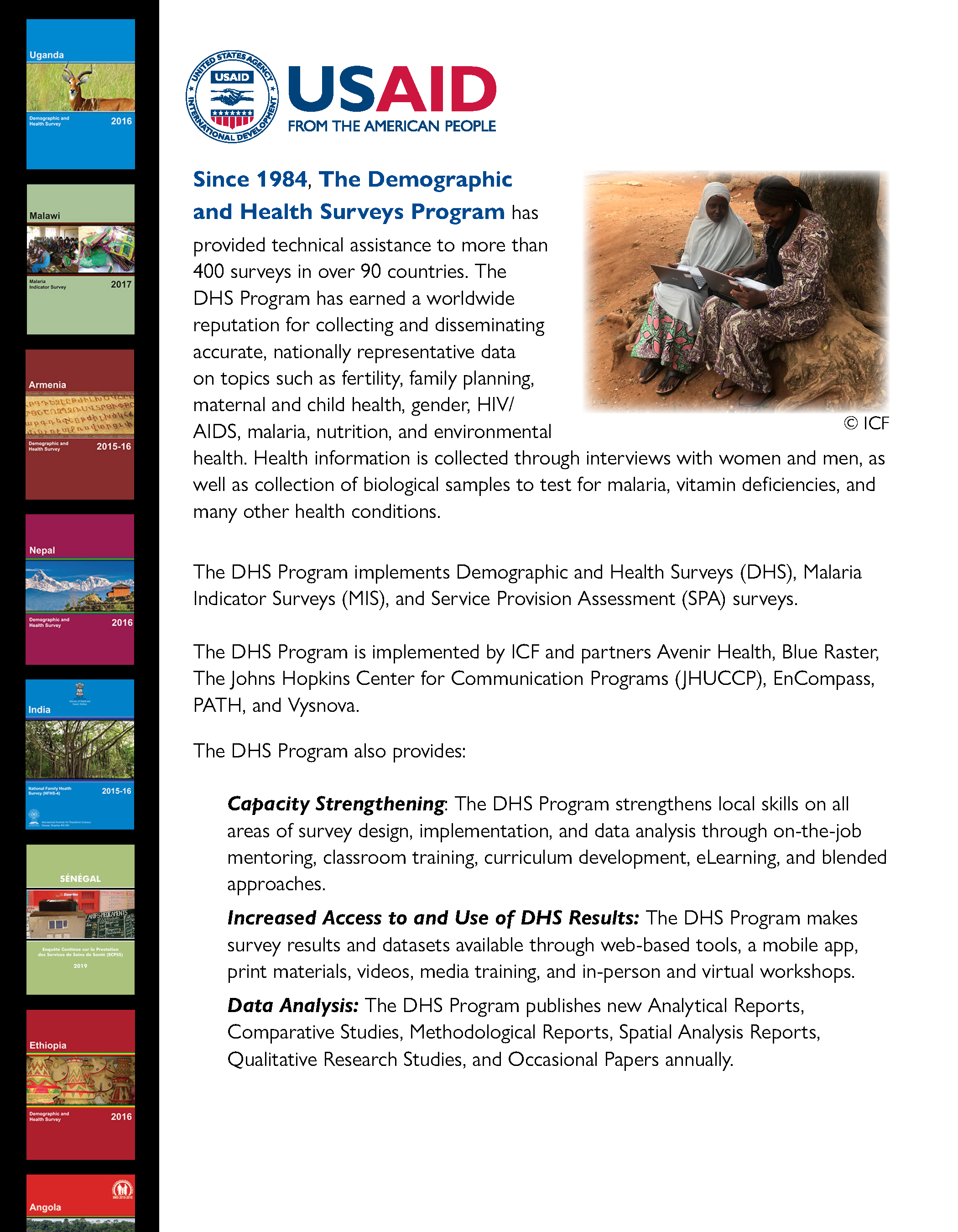Press Releases
Report: Domestic violence threatens health of children with lower immunization rates and Higher mortality rates and poor nutrition
Domestic violence has an obvious impact on the health and well being of the women being abused, but a new report also highlights important intergenerational effects of such violence: the children of abused women are also more likely to suffer health problems.
MEASURE DHS just released Profiling Domestic Violence: A Multi-Country Study, a comprehensive analysis of domestic violence in nine developing countries based on Demographic and Health Surveys (DHS) data. The report finds high rates of domestic violence in all countries studied, with over 40% of women in several countries reporting spousal or intimate partner abuse. The U.S. Agency for International Development supports MEASURE DHS, which is led by Calverton, MD-based ORC Macro in partnership with Johns Hopkins Bloomberg School of Public Health/Center for Communication Programs, PATH, Jorge Scientific Corporation, and Casals and Associates.
The number of ever-married women reporting spousal physical or sexual abuse was highest in Zambia (48%), Colombia (44%), and Peru (42%) and lowest in Cambodia (18%), India (19%), and the Dominican Republic (22%). About one in three women in Egypt (34%), Nicaragua (30%) and Haiti (29%) reported such abuse. In most countries, the highest rates of violence occur in moderately wealthy households, and not, as often assumed, among poorest households.
"We know women in violent situations often have poor health with some ending up as homicides and suicides, but this report also documents its impact on their young children," said Sunita Kishor, PhD, Senior Gender Specialist at ORC Macro. "The children of abused mothers are more likely to be malnourished and less likely to be immunized than other children."
According to the report, infant and child mortality rates are also higher among women who have ever experienced violence when compared with women who have not. In Cambodia, Egypt, India, Nicaragua, and Zambia, all five of the infant and child mortality rates (based on the age of the child at death) were higher for abused women.
"We hope this report can serve as a tool for program planners and policymakers as we work to end violence against women worldwide," said Kiersten Johnson (PhD), a report co-author. "This violence has wide-ranging family and social consequences as demonstrated by our data."
The DHS collects demographic and health data in developing countries by conducting in-person interviews within households. Long considered the "gold standard" survey for evaluating key population, nutrition, and health issues, the DHS has added questions on domestic violence and women's empowerment, allowing for in-depth analyses of the health and other consequences of gender relations within households
MEASURE DHS assists institutions in developing countries to obtain and analyze data needed to plan, monitor, and evaluate population, health, and nutrition programs. Macro International Inc., an Opinion Research Corporation company, (ORC Macro) has conducted projects for public and private sector clients in more than 100 countries. ORC Macro's mission is to deliver high quality, research-based solutions to complex problems, integrating objective information with the advisory and implementation tasks needed to improve real world performance.
